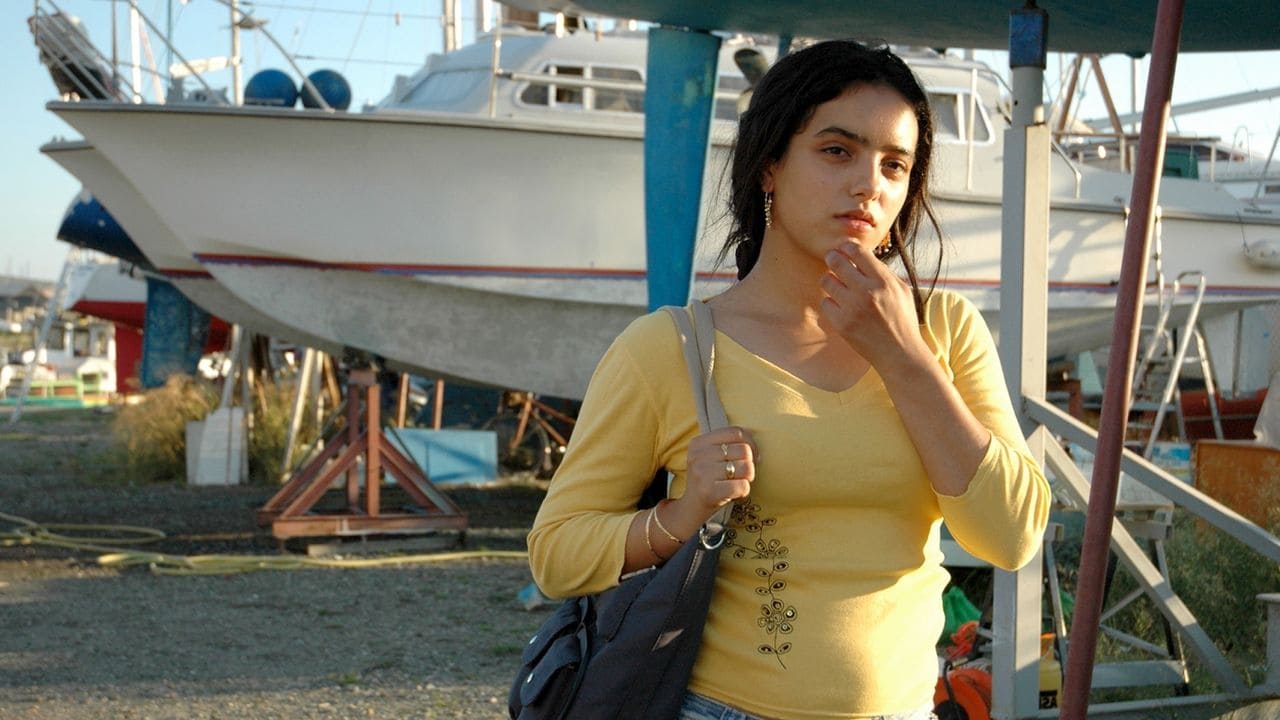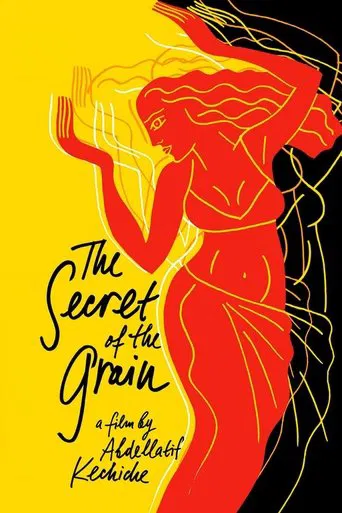

"The Secret of the Grain" has a very respectable score on IMDb and is on DVD from the fancified Criterion Collection (think art films). However, despite this pedigree, I noticed that the reviews tended to either love the film or strongly dislike it. Put me with the latter group, as the film seemed incredibly dull and amateurish in some ways. The biggest problem is that the film is about two and a half hours long--and could have easily been done in 90 minutes. Too often, scenes go on too long and editing is a serious problem. Too often, also, the camera pans about when folks are talking in a group instead of using edits (which would require multiple cameras). The result is sloppy and heightens the dullness of the film. Overall, the story of a 61 year- old man who wants to open a couscous restaurant may not be the most exciting topic in the world--but the film manages to make it even less interesting at every turn. If you want to see some very well made films featuring Muslim characters who are everyday folk, try watching the films of Majid Majidi. They manage to do everything this film couldn't with similar sorts of characters.
... View MoreFilm director Abdel Kechiche became so involved with the footage for the picture La Graine et le Mulet (The Secret of the Grain) which tells the story of a big dysfunctional family of Tunisian immigrants in the southern French port town of Sete that he could not part with a smallest parts of it. He dedicated the film to his father, and I would not be surprised to find out that the film characters with their traditions, everyday problems, struggles, hopes, and losses were written by Abdel Kechiche from his own family, and the story he tells was inspired by his own growing up. The Secret of the Grain is compelling and personal movie but Kechiche either should have taken another editor or let them use the scissors without reservation. The movie is long with many scenes practically begging of being significantly trimmed. It does not apply to all scenes. Some are amazingly acted, and I would not miss a second of the scene where young Rym (Hafsia Herzi) is trying to convince her mother Lilia to go to the big party in the final part of the film. A newcomer Hafsia Herzi is a born actress, and a good one. She is without a doubt a very promising talent with huge potential but her endless belly-dancing in the final was just that - endless and boring. I get the purpose of the scene but its length and the camera peering at Hafsia's belly for what seems hours, totally kills it.Kechiche shot the film in Cinéma vérité style, and while it works and lets us actually get to know the characters, overlong monologues and conversations often made me feel like watching a reality talk show which is a completely different genre altogether. The emotional and powerful monologue of Julia, the long-suffering wife of one of a male characters, would have been ten times more powerful had it been twice or even trice shorter. Yes, perhaps in reality the neglected young wife and mother would cry and complain even longer than the scene in the film lasts but we the viewers are grownups, we understand, we get it - don't hit us over the head.The film is a recipient of many Awards including four César Awards (Best Film, Best Directing, Best Writing, and Most Promising Actress for Herzi) and it was nominated for Best Editing which really surprised me. I think Kechiche deserved to be recognized and rewarded but I hope that he will be more critical with his future films. The film creator should not be afraid of cutting of all unnecessary parts of his work to let a hidden masterpiece inside it breathe freely.
... View MoreIt's the third movie of Abdellatif Kechiche (coming after "La Faute à Voltaire", and "L'Esquive"). All these movies deal in a way or another with the life of Tunisian immigrants in France.This time in "Couscous" the director wanted to show his own background, the universe of his own family, Tunisian immigrants living in Nice, and especially he wanted to bring a tribute to his father, the man who had struggled for all his life to transmit a sense to all of them. It was not to be a biographical film, what Mr. Kechiche was looking for was to catch an atmosphere, and I would say, to catch the ethos.The shootings have not been done in Nice, as the director feared to become much too sentimental. The chosen location was Sète instead, a small Mediterranean town, where the fishermen leave on their boats each morning and sometimes reach North Africa or the Asian borders, a town struggling with the same issues as everywhere in Europe nowadays: decline of production and unemployment, with the small shipyard challenged by concurrence, the fishing industry challenged the same.The director had intended to ask his father to play in the movie and started to look for funding and to organize the team. Meanwhile the father passed away. Mr. Kechiche decided then to put a Tunisian actor in the role of the father. It was Mustapha Adouani, whom the director knew very well. Exactly when shootings were to start, Mr. Adouani fell gravely ill (he died after a few months), so they had to find on the spot another solution.And the solution they found proved brilliant: they hired a non-actor, Habib Boufares, a worker from Nice, a lifelong friend of the father. The role fitted to him as a glove! Actually almost the whole team is of non-actors. The screenplay details were very loosely followed, the director left to the cast the full liberty to improvise. They were playing their own kind of life after all! And they lived their life there, in front of the camera (it was a hand-held camera , to not impede the non-actors in any way). This movie breathes trough all its pores of life, of authenticity, of immediacy! There are only a few professional actors in the cast. Hafsia Herzi (a young actress showing stamina and commitment) plays the step-daughter of the father, a very determined girl, sincerely attached to him and giving full support in difficult moments. There is also Alice Houri, bringing in a secondary role force and sincerity.I have read the reviews to this movie. Many of them are very critical. The movie is excessively long, they say, and there are a lot of scenes that could have been much shorter without loosing anything. It is a 150 minutes film: one third is devoted to a dinner in family; the mother has prepared fish couscous (you could guess), an endless chat is about anything and nothing; a second third is devoted to a dinner on a boat-restaurant, where everybody is waiting for the main course (fish couscous, you betcha).Well, it depends on your taste to like this movie or not (it goes the same with the couscous as a dish). I think the director took this risk, to let each scene to unfold on its own, regardless how long it was taking, for the sake of authenticity. He was interested in catching the universe of that community of Tunisian immigrants, in rendering it as natural as it really is; to get this way the ethos of that world. And he needed for this to not interfere in any way: neither by screenplay, nor by camera, nor by editing.It is a family risking to disintegrate: the parents are separated, one of the sons is cheating his wife, there are tensions with the step-daughter. What keep them strong is the recourse to their specificity when need is: their cuisine, the wonderful plates with fish couscous. And their music and dance, in the most dramatic moments. There is a long scene of belly dance at the end of the movie: I don't want to say more, to not spoil the story. These guys speak only French and follow the French system of values. They keep however their cultural origins as assets.Some reviewers mentioned "Eat Drink Man Woman" of Ang Lee: there also it is cuisine that keeps family against disintegration. I would mention also in this context "A Touch of Spice": a Greek family forced to leave Istanbul will keep their specific identity by keeping to "Politiky Kouzina", the way Greeks from Istanbul use spices in their dishes.For me "Couscous" called in mind also "35 Rhums", another French movie whose heroes also belong to an ethnic minority in France.I think somehow the family in "Couscous" and the movie itself resemble: both could disintegrate, both keep ultimately strong, the family keeping to their cuisine, the movie by keeping to the authenticity of this universe and by getting their ethos.
... View MoreOne that likes generalizations may say that French movies often get trapped in what one may call "a presumptuous way of looking at life". Always that unadjusted narrative, and of course the mysterious/pseudo-philosophical ending. Well, this one is a French contemporary movie that is not attached formulas. The contemplative look is sure french, however the measure is precise. It provides an unbelievable and unexpected intimacy with the characters, which is only recognized by the viewer as the movie comes to the end. Offering a particular time frame that values a constant and naturalistic look at the sequences, this movie conducts you through the beauty of simple things in life as if it was the greatest conquests of human kind.
... View More